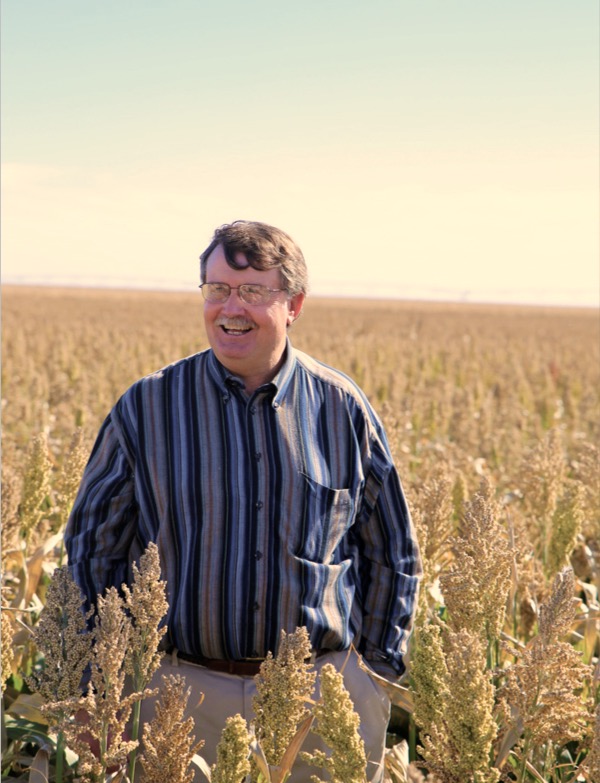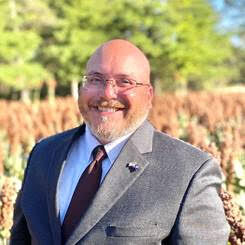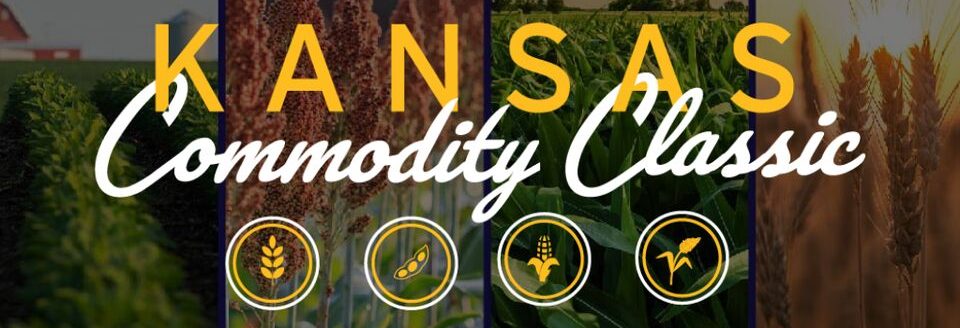In America’s heartland, a culinary revolution continues to gain momentum.
Grain sorghum, which for years was relegated to the sidelines, is claiming the spotlight as a burgeoning food trend.
At the forefront is (pictured above) Earl Roemer, a fourth-generation Scott County, Kansas, farmer who, nearly two decades ago, envisioned a future where food-grade sorghum could flourish.
As more consumers shift their dietary habits and seek sustainable options, Roemer has capitalized on sorghum’s gluten-free and non-GMO properties by establishing a business venture called Nu Life Market. From an unassuming complex on the outskirts of Scott City, he operates one of the nation’s largest grain sorghum flour mills—supplying products to major food companies across the United States.
“I definitely saw an opportunity,” he said, recalling his early research on food-grade sorghum two decades ago. Still, he admits, Nu Life Market’s reach has outgrown even his expectations.
“We produce millions of pounds of grain sorghum ingredients a year,” he said. “When I started, we went from producing very little to now that kind of volume.”
Creating a ‘Nu’ Market in the Kansas High Plains

Driving along Kansas Highway 96 toward Scott City reveals a landscape dominated by agriculture, making it an ideal location to launch a value-added agriculture company.
Kansas leads the nation in sorghum production, and in this semi-arid region where the Ogallala Aquifer is steadily depleting, farmers are increasingly shifting from water-intensive corn to drought-resistant sorghum.
Roemer saw a need to increase sorghum’s market value beyond feed and fuel. Inspired by his experience on the National Grain Sorghum research team and as a founding member of the Sorghum Checkoff program in the early 2000s, Roemer recognized a global disparity. Sorghum, a staple food source across the world, remained underutilized in the U.S.
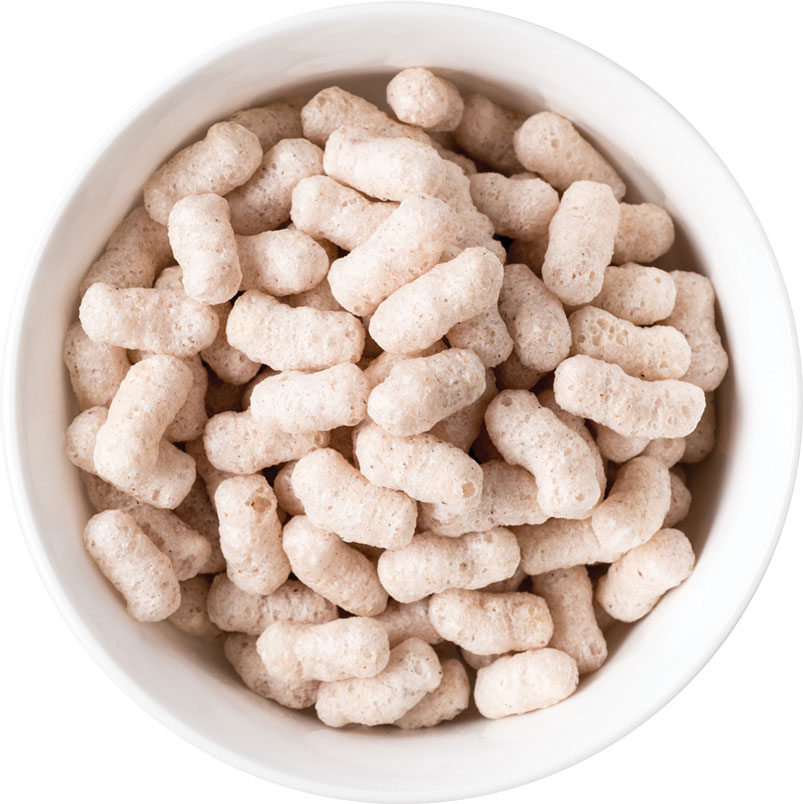
“Around the world, over 100 million people consume grain sorghum every day,” said Roemer. “Why not here in the U.S.?”
This question became the driving force behind Nu Life Market.
When Roemer started Nu Life in 2012, his initial focus was capitalizing on the gluten-free trend. While its gluten-free nature remains one of sorghum’s key selling points, consumer preferences have shifted to include other attributes like environmental impact.
A 2022 Cargill survey showed more than half of consumers desire sustainably produced products. Food companies are responding, with companies like Nestle and General Mills prioritizing environmental goals like greenhouse gas emission reductions and sourcing ingredients grown using regenerative farming methods, said Rachel Klataske, Nu Life Market’s director of business development.
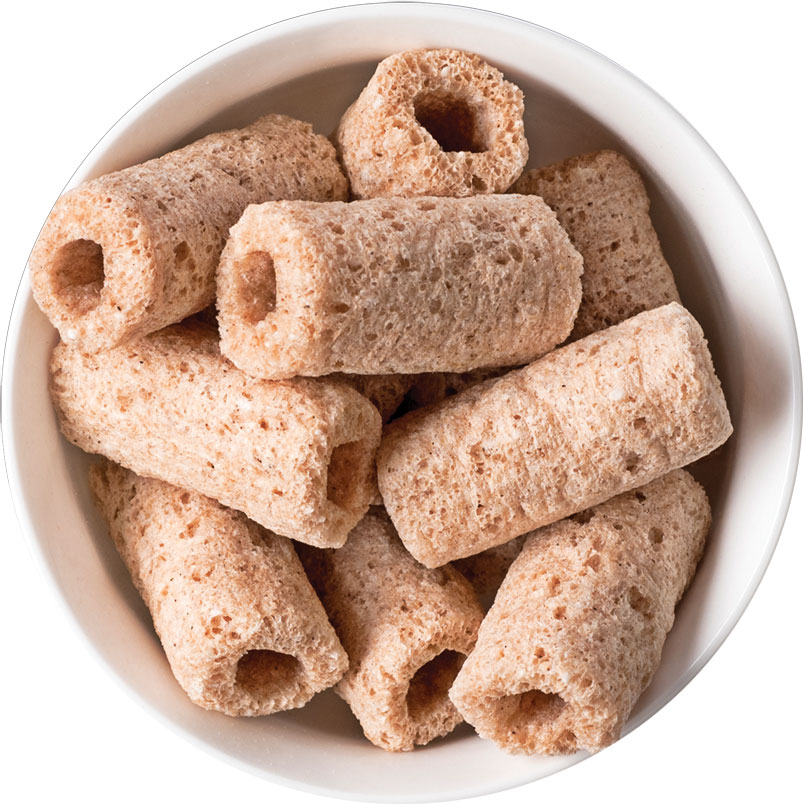
This shift in consumer demand presented a new need, she said: Transparency in food production.
“We’ve seen continued growth over the past 10, 15 years with a stronger focus on identity-preserved grains,” Roemer said. “Consumers want to know where and how their food products are grown and produced. That’s what consumers are demanding, and they drive everything we do in the food industry.”
Partnering with the Sorghum Checkoff Program, Nu Life collects data on the sustainability practices of their sorghum farms, Klataske said. This includes soil health, water quality, carbon sequestration and fertilizer usage and other data.
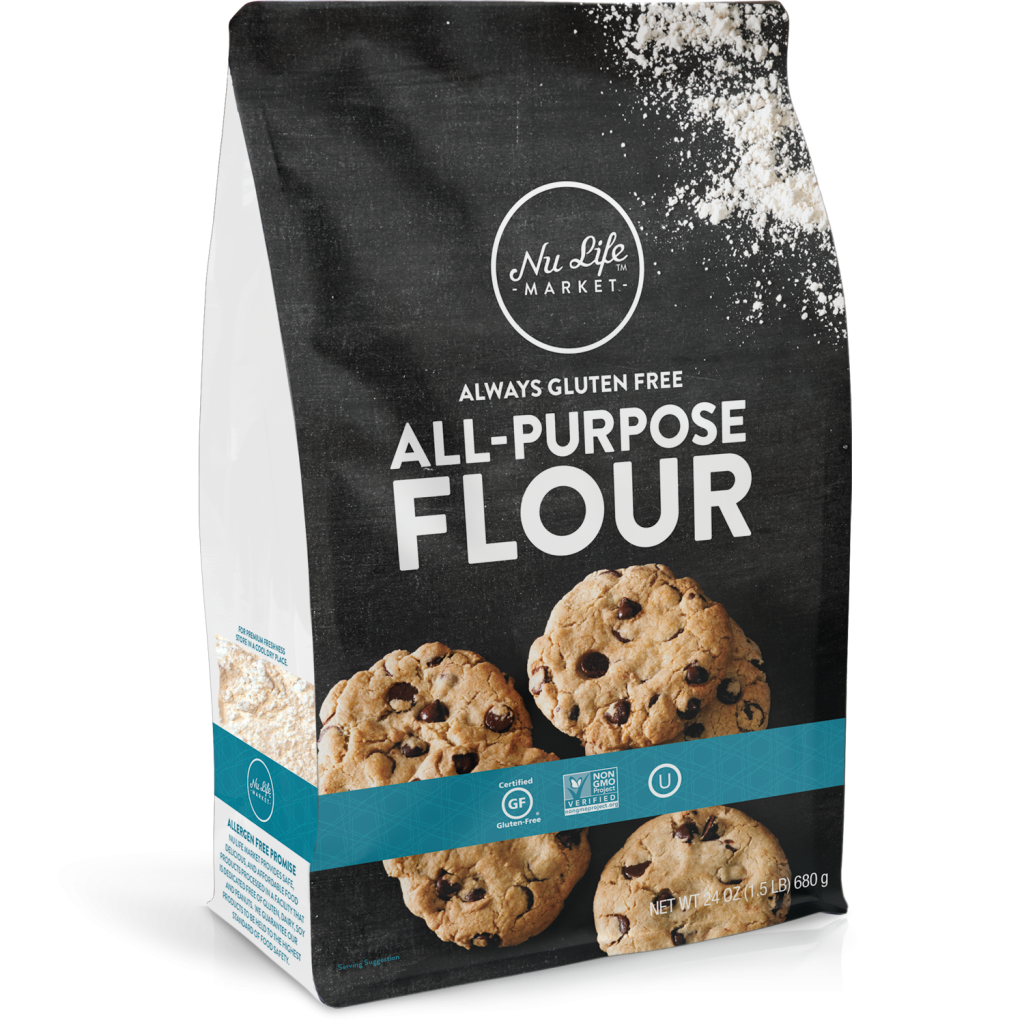
The data collected empowers food companies to communicate the complete environmental footprint of their sorghum-based products, she said.
“Large companies have long-range goals for emission reduction,” Klataske said. “With that, they focus on what they can control— including their own products and the ingredients sourced for them.”
Growing demand
Sorghum is still a relatively unknown ingredient for many. While the United States is the world’s largest supplier of sorghum, and Kansas leads as the top-producing state, only 3% of sorghum in the U.S. is used for human consumption.
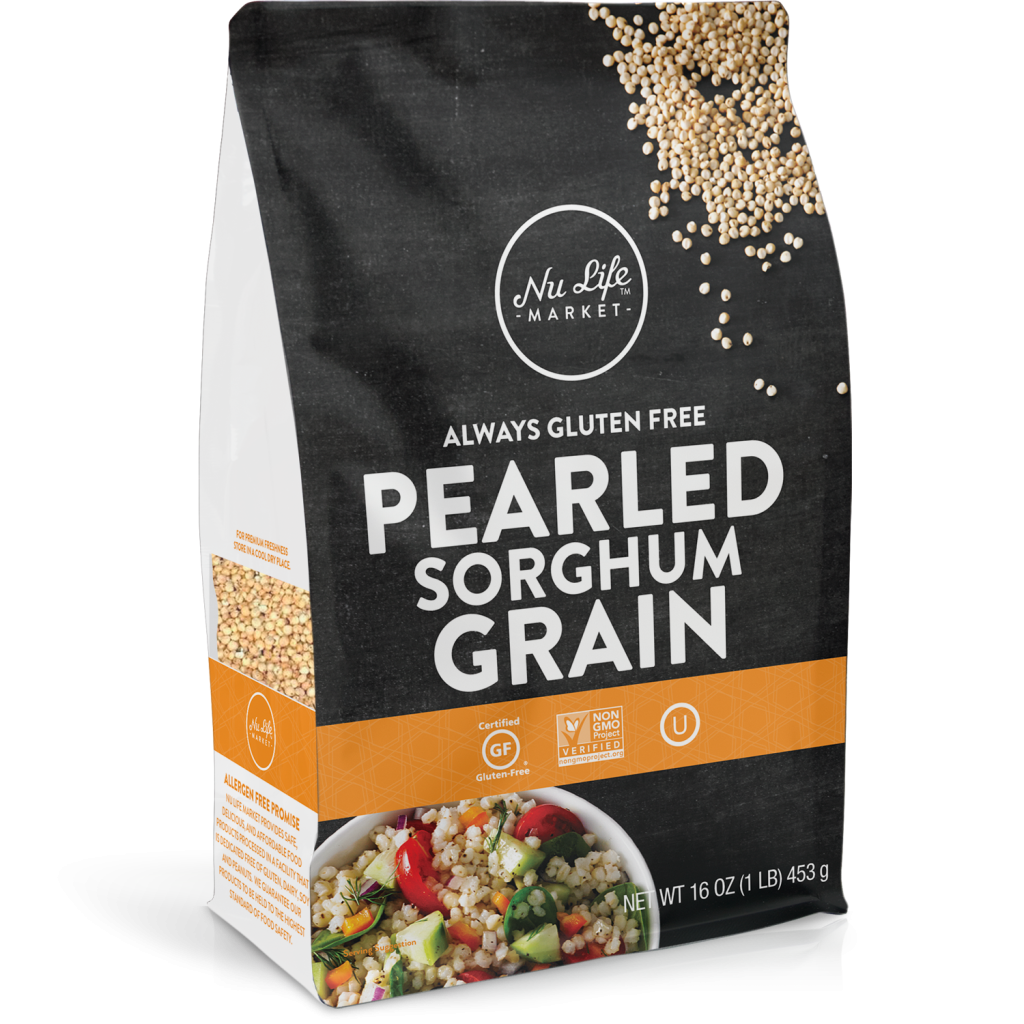
“While sorghum’s use in animal feed and ethanol is well-known, its incredible versatility and functional qualities that make it ideal for cooking are less so,” said Lanier Dabruzzi, director of nutrition and food innovation with the United Sorghum Checkoff Program.
The Sorghum Checkoff program is working tirelessly to change that. Its mission is to bridge this gap by educating chefs, dietitians and food companies about sorghum’s adaptability and health benefits — all while working with food manufacturing and food-service companies to develop new menu items and products.

Success stories are already emerging, Dabruzzi said. Once Upon A Farm, a baby food brand, recently launched its first sorghum product with the Checkoff’s help. Media outreach efforts have also reached more than 334 million people, promoting the grain’s advantages.
It’s working.
“There are more than 1,600 sorghum-based products currently on the market, and that number is growing each day,” she said.
“We would love to see sorghum in the kitchens and on the plates of all Americans,” she added.
One of the Sorghum Checkoff’s main focuses this year is exploring culinary uses of sorghum, leading the organization to hire its first-ever corporate chef consultant, Chef Chase Obenchain. He’s developing recipes and resources for home cooks, restaurants and food manufacturers— making it easier for consumers to incorporate sorghum into their meals.
Schools are another target area.
“The current whole-grain requirement for schools states that at least 80% of the weekly grains in school lunch and breakfast menus must be whole-grain rich,” Dabruzzi said. “Whole grain sorghum, in its many forms including grain, flour and popped, serves as a solution to help school nutrition professionals meet that requirement in a new and exciting way.”
The Checkoff supports this initiative with a farm-to-school curriculum, a food service guide and partnerships with manufacturers to create school-compliant sorghum products.
Touting Sorghum’s Value
Roemer admits he underestimated the initial hurdles he would face when he started Nu LIfe Market a decade ago.
“I look back, and it was a tough road,” he said. “I had to be a little naive, to be honest.”
However, his dedication is paying off, with sorghum increasingly visible on grocery store shelves.
“Many products that contain sorghum come from Kansas-produced grain milled right here in Kansas,” he said.
Moreover, it’s rewarding.

“We are out here in western Kansas producing a grain that has great demand for consumers who are climate-conscious. They want to know their food uses fewer resources and is grown sustainably.”
Joining Nu Life Market in 2016, Klataske initially encountered a lack of awareness about sorghum at events and trade shows. Today, the tables have turned. Visitors actively seek her out, eager to learn more or share their own sorghum applications.
“Nothing makes me more excited than seeing a product where sorghum is the first ingredient, and the company is talking about why it chose sorghum,” she said.
For more information on Nu Life Market, visit nulifemarket.com.
Amy Bickel can be reached at [email protected].
